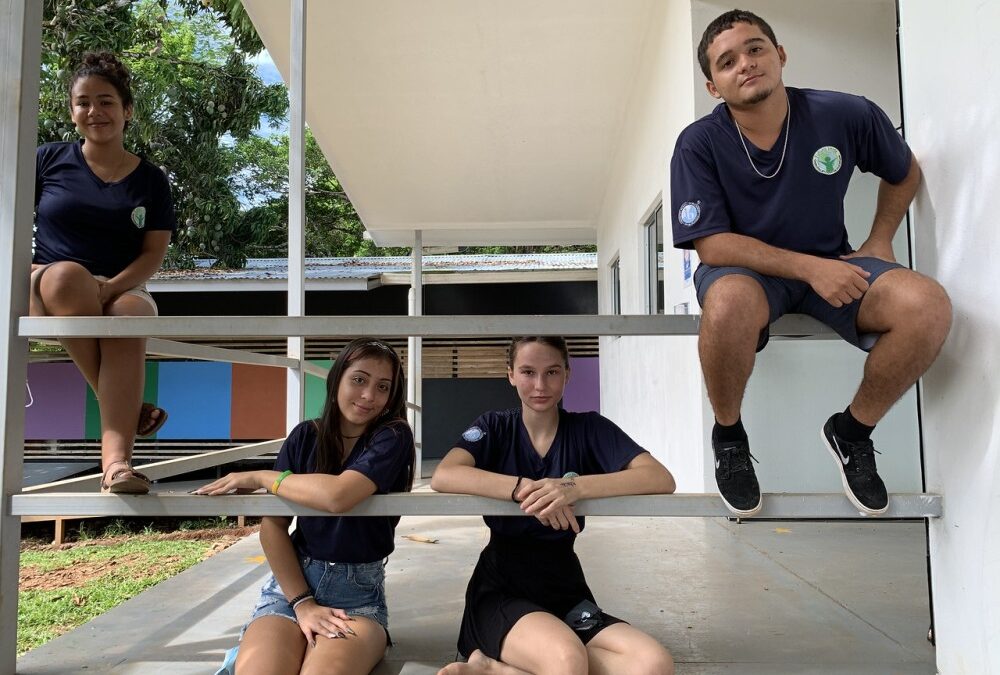
by Khalida Lockheed | May 7, 2021
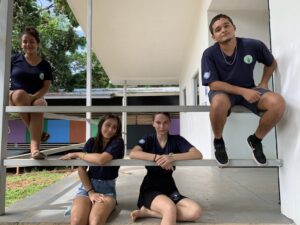
The International Baccalaureate is not only for Diploma Program students, 11th and 12th graders. The IB Organization offers programs in the Primary and Middle years, preparing students to be global citizens, transdisciplinary thinkers, and well rounded people.
Like other IB schools in Costa Rica, Futuro Verde, is not authorized as a “continuum school” offering all three programs. However, by offering the capstone Diploma Program, in order to properly prepare students to be successful has required that we align the primary and middle years’ curriculum to IB.
What does this mean?
It means that all teachers, at all levels, must learn about the IB programs and ensure students are meeting the required standards.
Furthermore, the IB programs and courses are continuously undergoing revision with updates and thorough course program review and revision every seven years. IB encourages teachers to participate in this process making it a collaborative product.
Okay, you say, it makes sense that teachers and students should learn about and practice the IB program at their level. But what about families? As parents of students in a private school, it is clear that education is an important value in your family. Why it is important for parents to understand the program of study of their children became more apparent during the last school year when the pandemic sent students home for virtual learning.
We all experienced school in a new way over the last year!
To this end, we invite you to visit this space for more information and an overview of the IB. In addition, we will be organizing parent meetings to further inform and learn about the IB programs and what it means for students at every level.
Keep tuned!
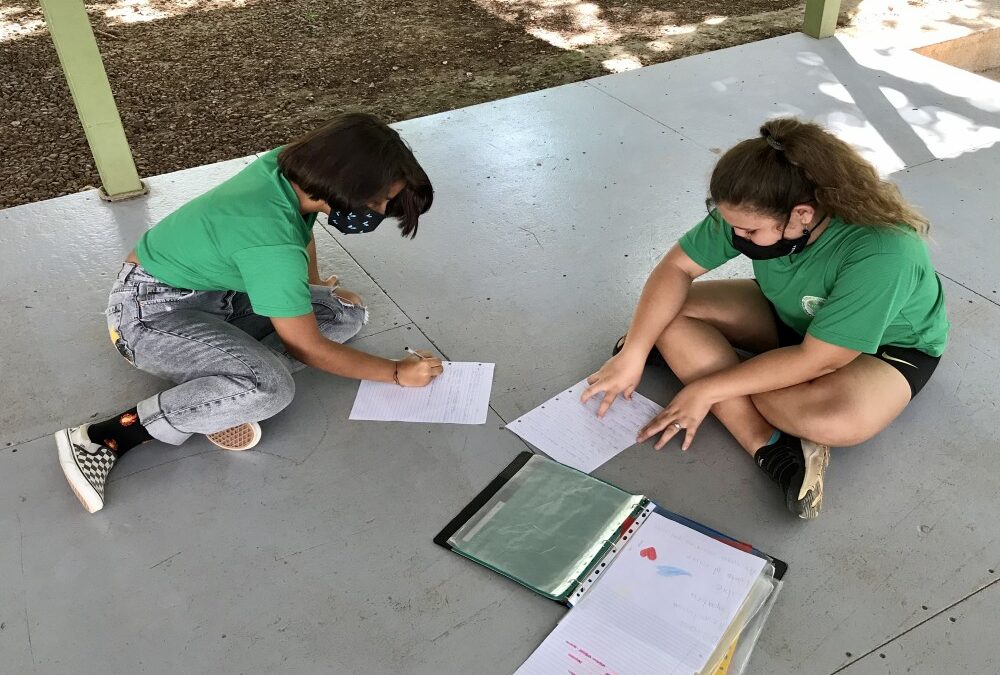
by Angie Briceño | Mar 4, 2021
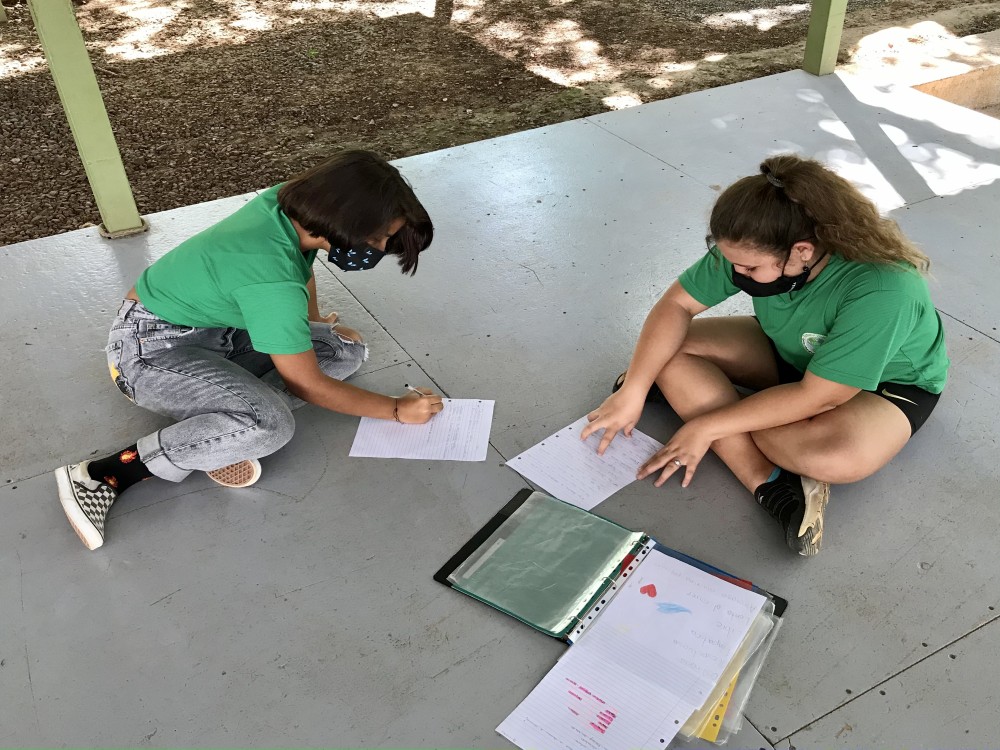
The time is approaching when teachers send home mid-semester reports. Mid-semester reports are just as important as end-of-semester grades, if not more important, because the purpose of these reports is to inform families about their child’s academic and class progress during the first semester.
The mid-semester reports for elementary and junior high school grades come with specific sections related to the student’s academic performance in the different areas in the different subjects they are studying.
This year there is going to be a major change in students’ mid-semester reports, as the report recognizes and endorses the different areas of the student:
- Attitude: Has a positive and respectful attitude towards peers and teachers.
- Delivery: Complies with the delivery of assignments and activities performed in class.
- Skills: Develops the skills and acquires the knowledge expected in the class activities or assignments.
- Effort: Demonstrates your best effort.
Sending the reports is an excellent time to talk to your child and also, do not hesitate to contact the teachers if you have any questions.
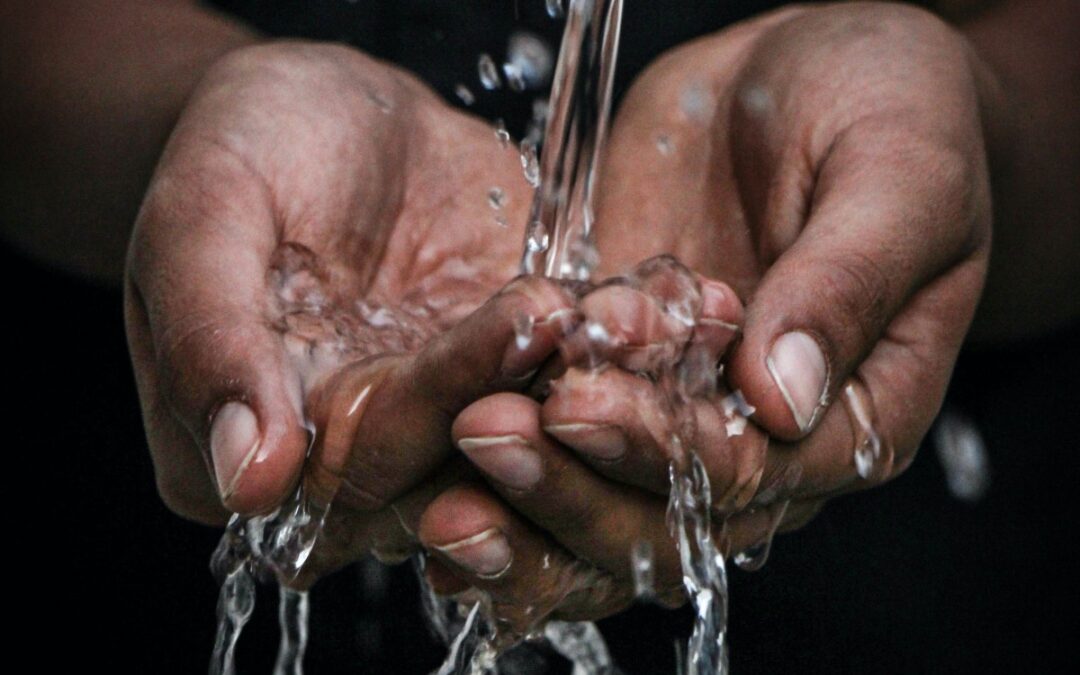
by Javier Sánchez Cáceres | Mar 4, 2021

World Water Day
World Water Day is celebrated on March 22 to reflect on the importance of this natural resource that allows us to live. We are very fortunate to live in an area where there is water everywhere and we do not have to travel to get drinking water. In spite of this, there is a lack of awareness about the proper use of this natural resource. That is why the celebration of World Water Day is extremely important, as it allows us to remember how urgent it is to use water responsibly and to be grateful for its abundance.
Possibly the misuse of water results from ignorance, as few have any idea that more than 2 million people do not have access to safe water or have to ration their use on a daily basis due to the threat of drought. During the COVID-19 pandemic we have reinforced the importance of water as hand washing is essential to control the spread of the virus. This reinforces the need to make proper use of the resource so that it remains available now and in the future.
As part of the celebration World Water Celebration and with the interest of providing information about water management in Montezuma, we present to you an interview with Donatella Luxardo, president of the ASADA of Montezuma, who was kind enough to answer questions generated by the students about the ASADA and its operation. Below are the questions that were asked to Donatella:
What is the ASADA?
The Asociaciones Administradoras de Sistemas de Acueductos y Alcantarillados Sanitarios (ASADAS) is the administrative body of communal aqueducts and sewers. The ASADAS operate as non-profit organizations, have five members, a fiscal, which are volunteer members who are elected by the community in assembly. It is worth mentioning that the ASADAS are regulated by the Ministry of Aqueducts and Sewers (AyA), the national water resource administration entity.
How many ASADAS are there in Cóbano?
The aqueduct of Cobano, Santa Teresa and Mal Pais is administered directly by AyA. In the other towns there is an association that manages the aqueduct, for example ASADA Montezuma, ASADA El Molino de Delicias and ASADA San Isidro. Currently the ASADA of Montezuma and Delicias have agreements established with AyA.
How many users does the Montezuma ASADA have?
Currently the ASADA has 310 users.
How much is the average monthly consumption of the users?
The consumption per user depends on the area of usufruct. The central area of the town is where there is more consumption, mainly due to the number of hotels and restaurants located in the area. In residential areas consumption is normally less than 30 m3.
What are ASADA’s plans for the short and long term?
In the next few months we will be working on the connection of two new wells to supply certain densely populated neighborhoods. In the long term we intend to start building a sanitary sewer system from the Montezuma School to Las Palmeras Beach.
Stay tuned for the second part of this interview, which we will transmit through a conversation on Zoom, in which we will discuss the origin of our water, how to use water responsibly, and how to save water consumption, among other topics.
Thank you very much for reading us and remember that water runs out drop by drop.


by Claudia Liliana Piñeros Henao | Feb 21, 2021
Celebrated on 21 February
Preserving the Language Diversity

Languages are of vital importance for people and the world. Unfortunately, due to the growth of globalization , they are increasingly under threat of disappearing altogether. When languages vanish, so does the world´s cultural diversity. Traditions, opportunities, memories, unique manners of expression and thinking will sadly also disappear.
According to the United Nations, at least 43% of the estimated 6000 languages spoken in the world are endangered. “Only a few hundred languages have genuinely been given a place in education systems and the public domain, and less than a hundred are used in the digital world”.
International Mother Language Day has been taking place every year since February 2000 to promote linguistic and cultural diversity and multilingualism.
Everybody should always be aware that languages are the most powerful instruments of preserving and developing our cultural heritage. We must encourage our children to cherish their mother tongue as it is a precious treasure, and It also helps them appreciate their personal, social, and cultural identity.
On the other hand, when our children develop strong communication skills in their mother language, they could have stronger literacy skills in other languages.
“Multilingual and multicultural societies exist through their languages which transmit and sustainably preserve traditional knowledge and cultures.” ( UN)

by Noelia | Jan 29, 2021
This year Futuro Verde will be conducting school tours a bit differently than in the past. Due to Health Ministry protocols, in person tours of the school by prospective families are not permitted. However, you can still schedule a virtual tour and information session! During the virtual tour, I will happily answer questions regarding school logistics, curriculum, extracurriculars, health protocols, and more. Virtual tours can be scheduled on Thursday mornings or afternoons. Please see the table below to review available time slots. We encourage interested families to contact us now and book your virtual tour!

To book your virtual tour, please contact Jennifer Middleton, jenni@futuro-verde.org.

by Finanzas | Jan 8, 2021

2021 comes with major changes, including the transition in the school calendar from the national calendar to the Northern Hemisphere calendar.
What does this change mean for families?
Normally, with the calendar we have traditionally had, a family with a child in primary school would pay 11 months of tuition at a rate of 263,500 per month. For this first year of transition, however, the student will complete their school year in 10 months at a rate of 290,000 per month. What does this mean? It means that the student would not actually have any increase in tuition relative to the school year. 4th grade is 2021 equals the same tuition as 3rd grade in 2020.
For the second transition year, the school cycle will be 9 months, starting in November and ending in July. This means that in relation to the current school cycle, families will have a savings of 2 months of tuition. In relation to the calendar year, the unpaid month in 2022 would be in August. Therefore, families will continue paying 11 months in a year as they had before the transition in calendar.
As we see the savings the first year will be in time, in the second year it will be in time and money. In the end, the student will end up graduating 6 months earlier than with the traditional calendar! This also bolsters the opportunity to enter an international university. Conversely, if the student is interested in continuing studies at a national university they will have enough time upon completion of secondary school to continue preparation for life at university.











